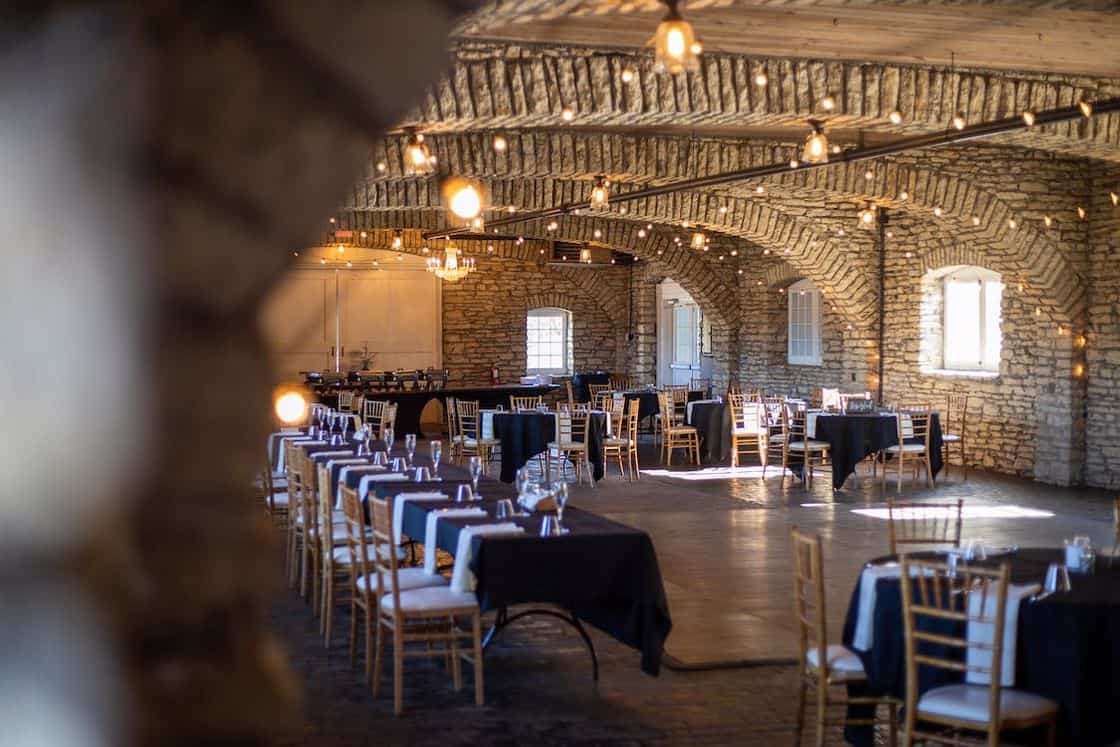Understanding Event Production: Why It Is Crucial for Successful Celebrations
Event production plays an important duty fit successful events. It entails mindful preparation, coordination, and implementation to assure every detail lines up with the event's vision. This process not only enhances guest experiences however also assists in meaningful connections among participants. Understanding the intricacies of event production can considerably impact the overall result. What are the essential components that contribute to a successful event, and how can they be properly managed?
The Function of Event Production in Developing Memorable Experiences
Numerous factors contribute to the success of an occasion, event production plays a pivotal role in crafting memorable experiences. This multifaceted procedure includes different components, consisting of preparation, logistics, and implementation. Reliable event production warranties that every information straightens with the total vision, creating a smooth circulation that mesmerizes guests. By collaborating timelines, handling sources, and overseeing technological aspects, event producers develop a structure for impactful experiences.Moreover, they curate environments that reverberate with the target audience, improving interaction and emotional connection. From selecting suitable places to integrating innovative technology, the choices made during production considerably influence how attendees regard and bear in mind the event. By focusing on high quality and interest to detail, event production transforms regular gatherings right into extraordinary moments, leaving long lasting impressions. Inevitably, the skillful orchestration of these components specifies the essence of an event, showcasing the relevance of specialist event production in accomplishing extraordinary outcomes.
Key Parts of Successful Event Production
Effective event production rests on a number of vital elements that assure success. Planning and coordination develop a strong foundation, while technological setup demands address logistical requirements. Furthermore, executing target market engagement techniques boosts the general experience, making the event remarkable.
Planning and Control
Preparation and coordination act as the foundation of successful event production, making certain that every detail lines up flawlessly to create a remarkable experience. Efficient planning entails establishing a clear vision and objectives, while sychronisation requires the thorough company of logistics, timetables, and resources. A well-defined timeline is vital, leading all stakeholders with crucial turning points and tasks. Interaction plays a crucial role, promoting collaboration among employee, vendors, and location team. Regular meetings and updates assist to deal with difficulties immediately, guaranteeing that everyone remains lined up with the event goals. Ultimately, a structured method to planning and coordination not only improves performance however also substantially adds to the total success and satisfaction of the event for guests and coordinators alike.
Technical Arrangement Demands
A successful event depends heavily on its technological arrangement needs, which encompass essential components such as audio-visual tools, lights, staging, and connectivity. Audio-visual equipment includes microphones, audio speakers, and projectors, making sure that discussions and performances are supplied clearly. Correct lighting enhances the setting and highlights key locations, while organizing offers the essential system for audio speakers and entertainers. Connectivity, consisting of Wi-Fi and electric gain access to, is vital for seamless interaction and technology assimilation. Each element must be diligently planned and performed, customized to the event's certain needs. Poor technical setups can cause interruptions, adversely affecting the total experience for guests, underscoring the relevance of detailed preparation and focus to detail in event production.
Target Market Engagement Approaches

The Importance of Preparation and Sychronisation
Preparation and coordination are essential to the success of any type of event production. Effective timeline monitoring, source allotment approaches, and group communication characteristics play essential functions in making certain that all aspects integrated seamlessly. Without an organized technique to these facets, events risk dealing with hold-ups, budget plan overruns, and miscommunication among staff member.
Reliable Timeline Management


While effective event production usually depends upon creativity and implementation, effective timeline monitoring continues to be a necessary element that can not be ignored. A well-structured timeline acts as the foundation of any event, making sure that each phase is carried out in a timely way. It allows for the sychronisation of various tasks, from venue configuration to guest arrivals, while stopping possible traffic jams. By plainly describing due dates and duties, event coordinators can keep focus and adapt to unanticipated difficulties. In addition, a meticulously crafted timeline fosters interaction among employee, promoting liability and collaboration. Ultimately, efficient timeline administration not only improves functional performance but likewise contributes significantly to the overall success and smooth execution of the event, leaving guests with an unforgettable experience.
Source Allotment Strategies
Efficient resource allotment methods are critical for the effective implementation of any kind of event. Proper planning permits event organizers to identify and distribute resources, such as finances, personnel, and materials, in a way that makes the most of effectiveness. By evaluating the details demands of each facet of the event, coordinators can focus on tasks and designate sources as necessary. Control amongst various departments makes certain that all aspects, from dealing with audiovisual demands, are appropriately sustained. This calculated approach not just reduces waste however also enhances the total experience for attendees. In addition, anticipating prospective difficulties and having contingency plans in area permits smoother procedures. Inevitably, efficient resource allocation adds substantially to accomplishing event goals and ensuring an unforgettable gathering.
Group Communication Dynamics
Exactly how can smooth interaction amongst staff member transform the event production procedure? Reliable interaction is crucial for collaborating jobs, sharing updates, and attending to challenges in real-time. When employee participate in open discussion, they can quickly identify potential problems and create options collaboratively, lessening delays and misunderstandings. This dynamic fosters a natural environment where everybody recognizes their roles and responsibilities, leading to a more synchronized effort. Furthermore, normal check-ins and responses loops enhance liability and assurance alignment with the event's purposes. By prioritizing interaction methods, teams can improve process, boost spirits, and eventually elevate the general quality of the event. Successful celebrations rest on the ability to communicate effectively, making it a necessary element of event production.
Enhancing Participant Interaction With Creative Layout
Innovative design plays a critical function in improving attendee interaction at events, as it cultivates an immersive setting that mesmerizes individuals' attention. By integrating cutting-edge visuals, interactive aspects, and thematic design, event organizers can develop unforgettable experiences that reverberate with attendees. Thoughtful layout designs advertise activity and exploration, urging visitors to interact with displays and each other.Incorporating innovation, such as augmented reality or live ballot, additional find here enriches the experience, enabling real-time responses and interaction. In addition, sensory elements like lights, sound, and scent can evoke feelings and create a more appealing atmosphere.The use storytelling with layout helps share the event's objective and message, making it extra relatable for participants. Ultimately, innovative style not only boosts interaction however likewise strengthens connections among participants, leaving a lasting perception that prolongs past the event itself. This calculated strategy to design is important for effective celebrations.
Managing Logistics for a Smooth Execution
While the enjoyment of an event can attract attendees in, handling logistics is vital to protect a seamless implementation. This involves thoroughly working with numerous aspects, from place option and format to food catering and transport. Efficient logistics administration guarantees that all components line up, enabling a smooth flow from registration to the final thought of the event.Additionally, a clear interaction strategy among all stakeholders is crucial. This includes personnel, vendors, and volunteers, who need to be informed of their duties and responsibilities. Preparing for prospective obstacles, such as devices failure or unexpected climate condition, can even more improve the event's success.Creating an in-depth timeline helps maintain the team on course and allows for timely changes. Ultimately, well-managed logistics not just promote a satisfying experience for attendees yet additionally mirror the professionalism and reliability and integrity of the organizers, adding to the general success of the celebration.

The Influence of Technology on Event Production
What duty does innovation play fit modern event production? Innovation has come to be a foundation of reliable event production, improving both intending and implementation procedures. From advanced enrollment systems to interactive applications, modern technology streamlines attendee monitoring and improves involvement. Virtual event systems permit organizers to reach bigger audiences, damaging geographical barriers and facilitating hybrid events that combine in-person and on the internet experiences.Additionally, audiovisual technologies, such as high-definition displays and audio systems, elevate the top quality of discussions and efficiencies, guaranteeing an unforgettable experience for participants - event production charlotte. Social network integration makes it possible for real-time responses and interaction, cultivating area interaction previously, throughout, and after the event. Information analytics tools aid organizers in checking individual actions and preferences, allowing customized experiences that reverberate with varied audiences. On the whole, the integration of modern technology in event production not only improves functional performance yet additionally enriches guest experiences, ultimately contributing to the success of the event
Assessing Success: Determining the Outcomes of Your Event
Success in event production hinges on efficient evaluation, which involves determining a range of outcomes to assess the general effect of an occasion. To attain this, organizers can employ both qualitative and measurable metrics. Quantitative measures may consist of attendance numbers, ticket sales, and income generated, while qualitative evaluations might involve guest complete satisfaction surveys and comments forms.Additionally, examining social networks involvement and media insurance coverage can supply understandings right into the event's reach and brand impact. Contrasting these metrics versus predefined objectives helps establish if the objectives were met.Furthermore, post-event debriefs with the preparation team can discover lessons found out and areas for renovation. By methodically assessing these outcomes, event manufacturers can boost future gatherings, making sure continual development and success. Inevitably, an extensive examination not just highlights achievements yet also informs critical choices for subsequent events, fostering a culture of quality in event production.
Often Asked Inquiries
What Credentials Should an Occasion Manufacturer Have?
Event producers ought to have strong business abilities, creative thinking, and efficient interaction capacities. A history in job administration, budgeting, and settlement is vital. Pertinent qualifications and experience in diverse event types further improve their qualifications.
Exactly How Can I Minimize Event Production Expenses Effectively?
To efficiently reduce event production expenses, one can enhance vendor option, discuss contracts, use internal sources, focus on crucial components, carry out modern technology for performance, and check out sponsorship chances to counter expenses without compromising high quality.
What Are the Common Challenges in Event Production?
Usual difficulties in event production consist of budget constraints, logistical sychronisation, vendor administration, time constraints, participant involvement, technical troubles, and unexpected scenarios - event production charlotte. Each aspect can substantially impact the overall success and smooth implementation of the event
How Do I Select the Right Place for My Event?
Selecting the helpful hints right place involves considering factors such as place, ability, features, and spending plan. Additionally, assessing availability and ambiance ensures the picked space aligns with the event's objectives and improves the general attendee experience.
What Is the Typical Timeline for Preparation an Occasion?
The typical timeline for planning an event varies, yet generally includes stages such as principle growth, location option, supplier sychronisation, promotion, and last prep work, commonly covering numerous months to guarantee visit this site right here an effective execution.